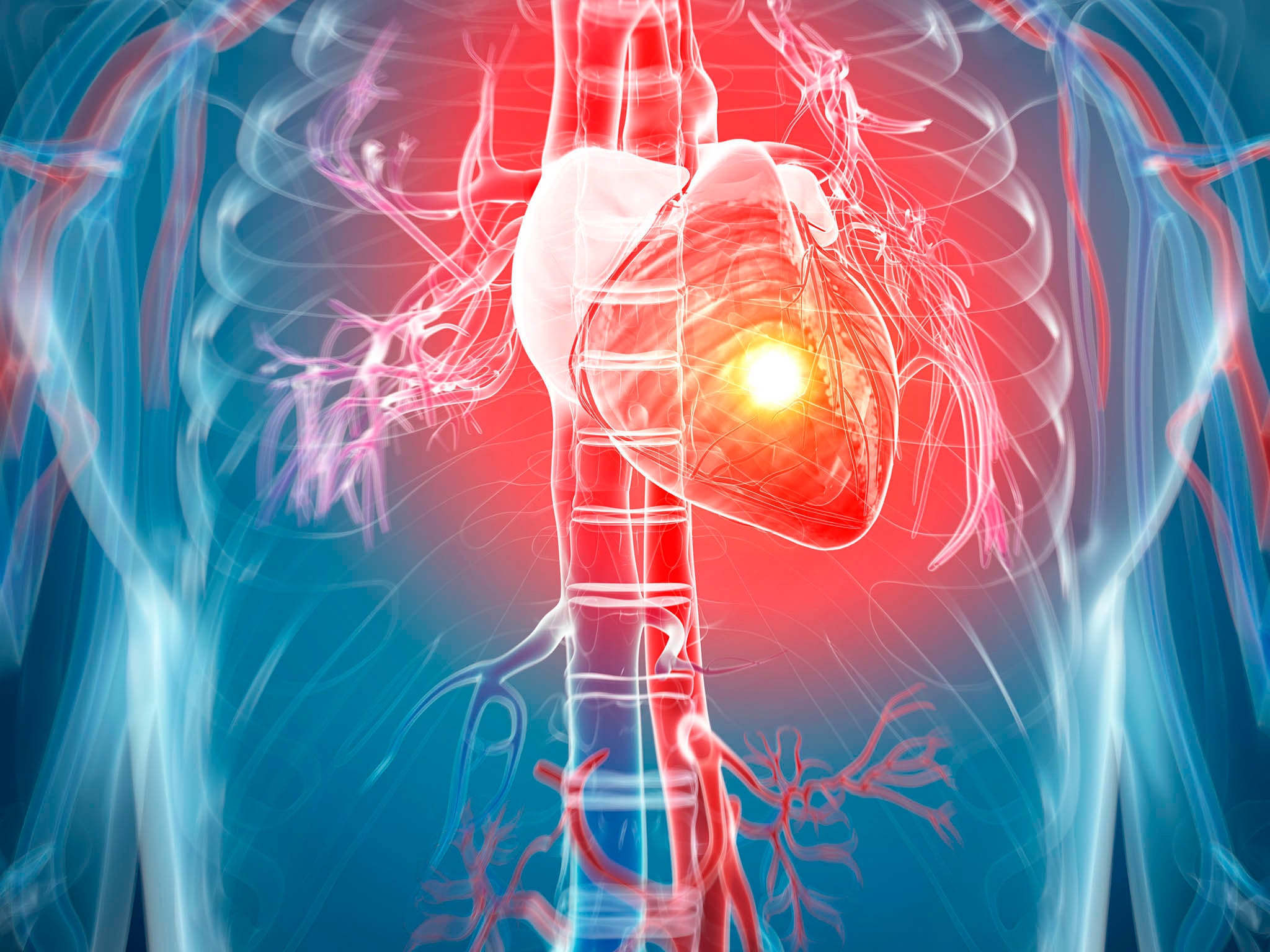Doctors are failing to spot heart attacks in women - these are the symptoms
Up to 28,000 women die each year in the UK

Your support helps us to tell the story
From reproductive rights to climate change to Big Tech, The Independent is on the ground when the story is developing. Whether it's investigating the financials of Elon Musk's pro-Trump PAC or producing our latest documentary, 'The A Word', which shines a light on the American women fighting for reproductive rights, we know how important it is to parse out the facts from the messaging.
At such a critical moment in US history, we need reporters on the ground. Your donation allows us to keep sending journalists to speak to both sides of the story.
The Independent is trusted by Americans across the entire political spectrum. And unlike many other quality news outlets, we choose not to lock Americans out of our reporting and analysis with paywalls. We believe quality journalism should be available to everyone, paid for by those who can afford it.
Your support makes all the difference.Women are twice as likely to receive a wrong diagnosis for a heart attack than men, according to a new study.
Nearly a third (29.9 per cent) of all heart attack patients had an initial diagnosis which was different from their final diagnosis.
Up to 28,000 women die each year in the UK from heart attacks, according to the British Heart Foundation (BHF) who part-funded the study.
Leeds University researchers used the UK national heart attack register, looking at 600,000 heart attack patients between April 2004 and March 2013.
The initial misdiagnosis can have "potentially important clinical repercussions, including an increased risk of death," said Researcher Dr Chris Gale.
The study involved 243 NHS hospitals in England and Wales which cared for patients who were aged between 18 to 100 years old when they were admitted. Researchers discovered 198,534 patients were initially misdiagnosed.
There two twypes of heart attack, Stemi and Nstemi. A Stemi attack is where there is a total block of the main artery that pumps oxygenated blood around the body.
A Nstemi attack, which is more common, occurs when there is a partial bockage of one or more arteries. Both types cause serious damage to the heart muscle.
Women who had a final diagnosis of Stemi had a 59 per cent greater chance of a misdiagnosis compared with men.
Women who had a final diagnosis of Nstemi had a 41 per cent greater chance of a misdiagnosis when compared with men, according to the study published in European Heart Journal Acute Cardiovascular Care.
Dr Mike Knapton from the BHF sad the difference in diagnosis is "alarmingly high" but stated there are more effective heart attack tests are currently being developed for female patients.
He added: "More research is urgently needed into tests that will enable earlier and more accurate diagnosis of a heart attack, particularly in women."
According to the NHS, the symptoms for a heart attack can include:
- "Chest pain - a feeling of pressure, tightness or squeezing in the centre of the chest.
- "Pain in other parts of the body - it can feel as if the pain is travelling from your chest to your arms, jaw, neck, back and abdomen.
- "Lightheadedness.
- "Sweating.
- "Nausea.
- "Breathlessness."
While the chest pain is usually severe - there can be no such symptom felt by women, the elderly or people suffering from diabetes.
An NHS England spokesman said: "Survival rates for heart attacks are the best they have ever been and swift diagnosis and treatment is key to this.
"We are working hard to continually improve tests for accurately diagnosing heart attacks in both men and women so that correct treatment can begin without delay, ensuring the best possible recovery for patients.
"We are also working to increase awareness of signs and symptoms of heart attack amongst both the public and healthcare professionals as this will help speed up diagnosis."
Join our commenting forum
Join thought-provoking conversations, follow other Independent readers and see their replies
Comments